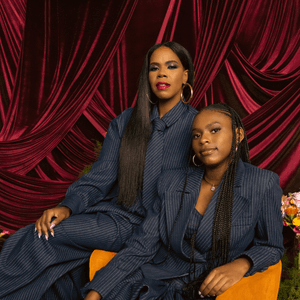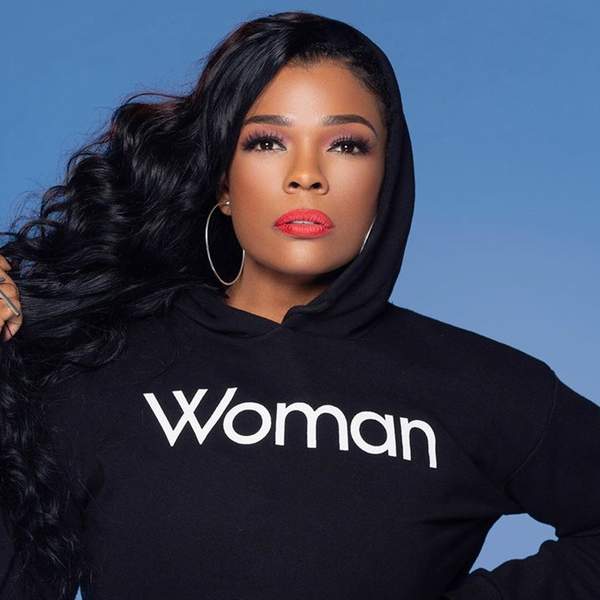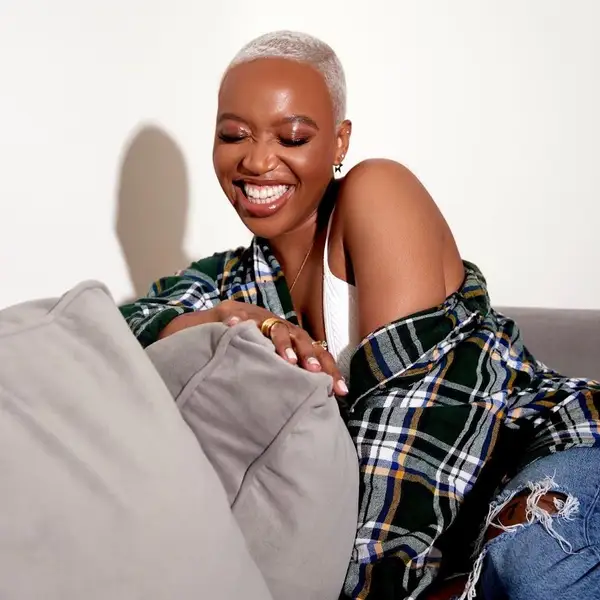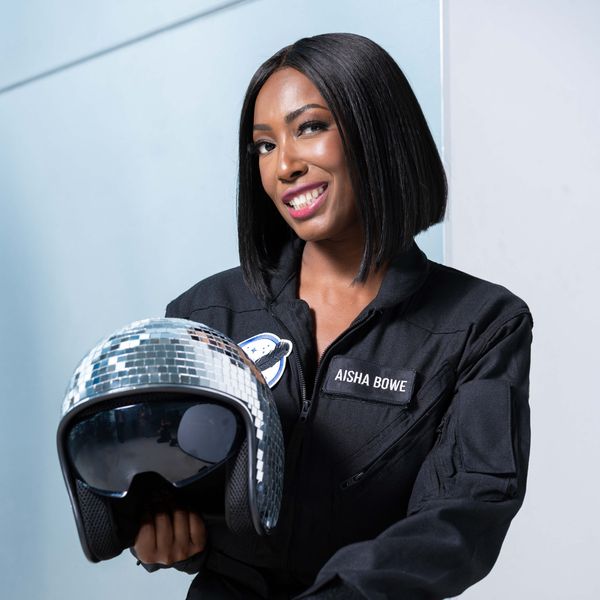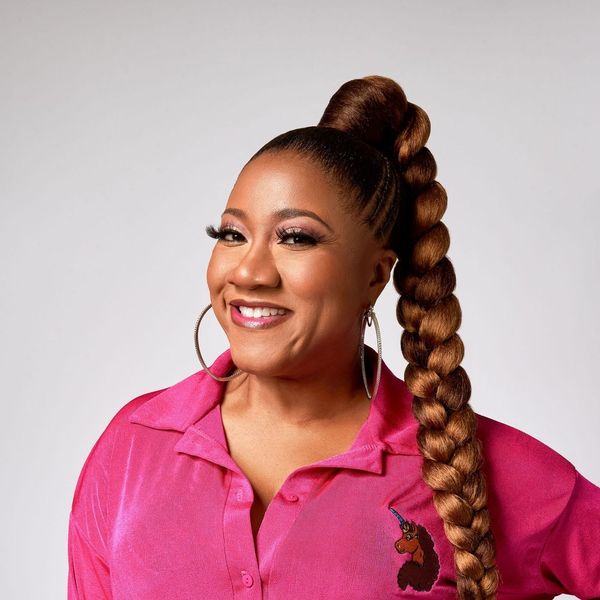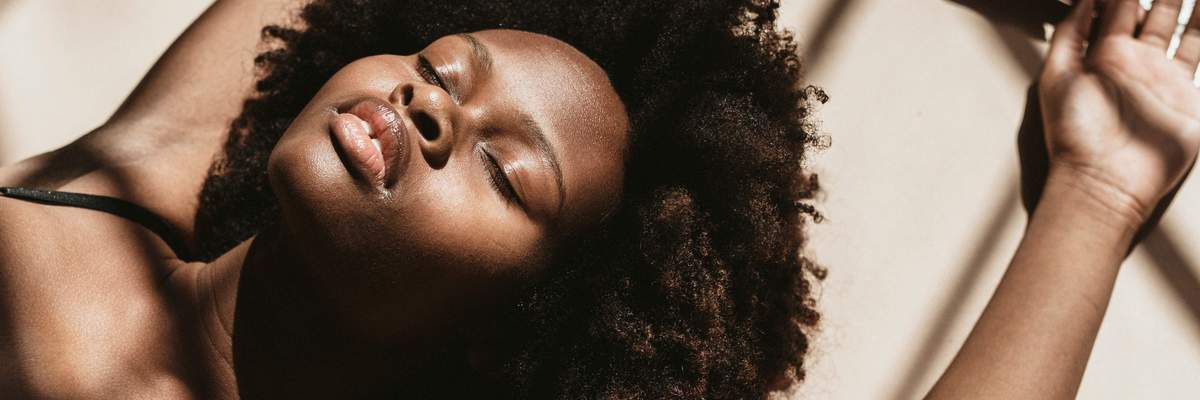Syleena Johnson's greatest instrument is her voice and has recognized her passion for music since her earliest childhood memories. With a father who was in the entertainment industry as a singer, music was part of her life from an early age and eventually blossomed into her participating in talent shows and showing the world what she was meant to do. "I just finished filming my UNSUNG episode which will premiere on TVOne early 2021 and that will tell the readers a lot about my story and how I began. I am excited for you to see it. It will show you how I got my start in the industry and how I got to where I am now," she spilled to xoNecole about her upcoming project.
As a singer, she has used her voice and songs to uplift women and Black people, but now as a talk show host on Cocktails and Queens on Fox Soul, Syleena is using her voice to empower Black women to demand respect and equality on the other side of the couch. "I am still and will always be a part of music," the former Sister Circle host told me about her transition into being a talk show host, "However, opportunities and God have allowed me to become a talk show host and share my opinions and thoughts as a woman in this world and in entertainment."
Nowadays in her career, Syleena can apply the multitude of lenses to her craft from the talent side to research and development as the interviewer. When she's not on the couch interviewing talent or in the booth making new empowerment anthems, the "Guess What" singer has been working on her latest docuseries project, The Making of a Woman, which was heavily inspired by her recently released Woman album.

Courtesy of Tony Tyus Photography
"This docuseries will show what my experience as a Black woman has been in this industry for over 20 years as well as being a working-class woman, a wife and a mother raising two sons. It will inspire people to see the challenges Black women face on a day-to-day basis and how we overcome it," she explained. "I wanted to show a message and present that in a body of work to create more of a conversation and a call-to-action. I've realized in order to make change, we must create content or use our voice to make a shift in change in our society."
xoNecole had the opportunity to catch up with the Grammy-nominated singer herself about using her voice to uplift women, her new docuseries The Making of a Woman, and being a Black woman in 2020 demanding equal rights in our current racial climate. Check out our conversation below.
xoNecole: Tell me about your docuseries, 'The Making Of A Woman', the messaging and the inspiration behind it.
Syleena Johnson: The docuseries The Making of a Woman is heavily inspired by my recent album, Woman. Each of my albums as a solo artist have been titled after chapters, however with today's racial climate I decided to create the album and docuseries to speak on the struggles and experiences of everyday Black women and what we go through in life in 2020. I created this docuseries to vocally create a body of work that documented the journey of what it took to create this album, mentally, internally and spiritually while sharing the experiences of what women go through like demanding equality and respect, having a voice to even having to work twice as hard as our male counterparts even through pain and adversity.
How does your new studio album, ‘Woman’, directly correlate with the story that you're telling us in the docuseries?
It's my journey, my thoughts and what I and many women endure as a Black woman in society as well as this industry. You'll see me on my journey of completing my album and shooting the video to my lead single off my new album. You'll see the vision that I had to want to highlight how beautiful and special women are. The docuseries speaks on dishonesty, respect and the many examples of inequality Black women face while showing the process of creating a body of work that shares the same message.
How are both releases timely considering our current racial climate?
Right now, we are in the year of the WOMAN. We have a Black woman that is working tirelessly to be the next Vice President of the United States. Black women are on the front lines organizing, protesting and leading the forefront of creating change for our economy and the futures of our next generation. Considering our current climate, both releases vocally tells a story that we still have work to do and are still fighting for respect in 2020. With both releases of my album and docuseries, I wanted to use what I've been seeing in situations like the #MeToo and Time's Up movement, and use my voice and passion in music to be a vessel for other women's stories and journeys.
What do you define as the makings of a woman?
The makings of a woman is the willingness of a woman to grow despite her flaws, despite her mistakes, despite her circumstances and her setbacks in life. The ingredients of the makings of a woman is built up of all the little experiences that you had and how you've handled them and most importantly learned from them. These are the certain experiences you must endure in life to come into your womanhood while helping you grow as a woman.
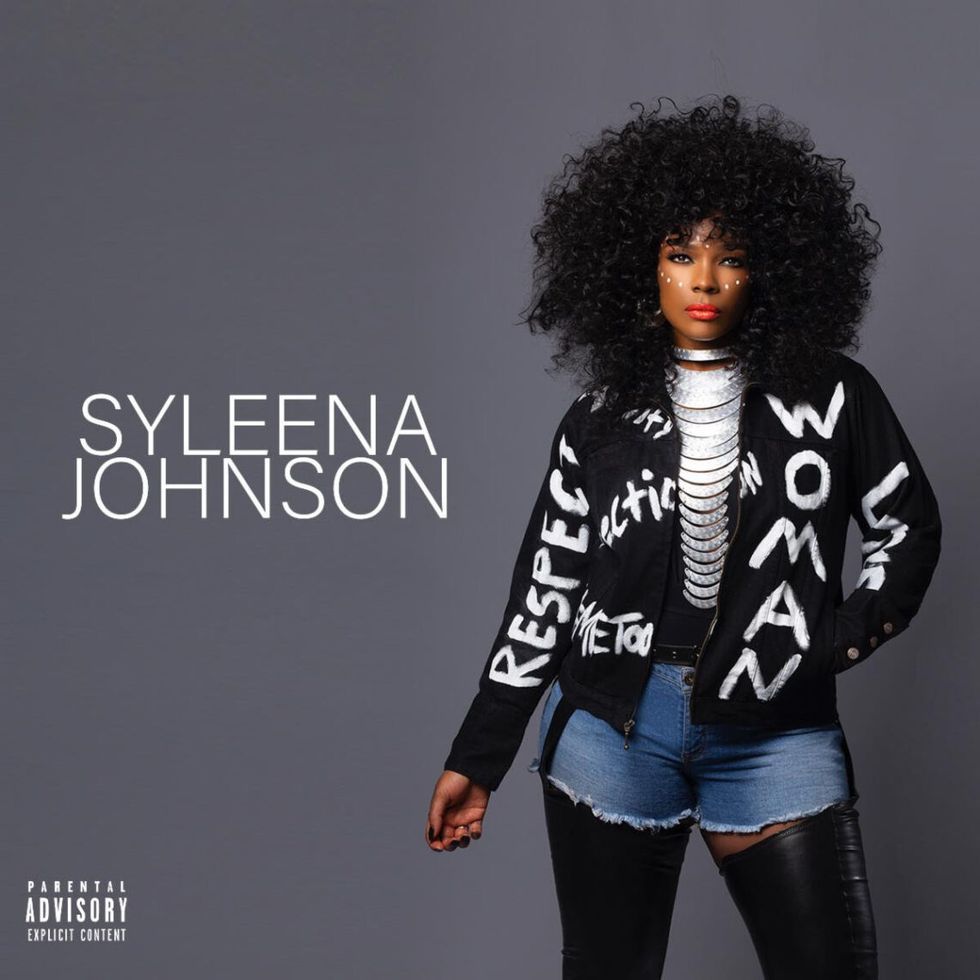
Courtesy of Tony Tyus Photography
"The makings of a woman is the willingness of a woman to grow despite her flaws, despite her mistakes, despite her circumstances and her setbacks in life. The ingredients of the makings of a woman is built up of all the little experiences that you had and how you've handled them and most importantly learned from them."
When do you feel the most "womanly" or the most beautiful as a woman?
I feel the most womanly when I am being a mother to my sons, when I am being a wife. Always working or in business mode does not make me feel like a woman, it makes me tired. I feel more womanly when I can have peace, when I can have "girl time" for myself. I feel the "womanliest" when I can be appreciated and when I am treated like a woman. I feel womanly when I can be heard and valued. More than anything, I feel the "womanliest" when I can operate as a mom and wife without having to be the authoritative figure. When you are a CEO and an entrepreneur you are the authoritative figure but when I come into my household I can relax without having to be the authoritative figure all the time because I have support.
"I feel the most womanly when I am being a mother to my sons, when I am being a wife. Always working or in business mode does not make me feel like a woman, it makes me tired. I feel more womanly when I can have peace, when I can have 'girl time' for myself. I feel the 'womanliest' when I can be appreciated and when I am treated like a woman. I feel womanly when I can be heard and valued."
What is the moment in your life when you believed that you were coming into your own as a woman?
That moment for me was when I got the diagnosis that my youngest son had autism. I developed a level of selflessness that had to take place mentally and emotionally in order for me to grow as a woman. Something like that is supposed to take me out of here and it did, however what that diagnosis did was made me come into my womanhood, turn up my senses as a mother, as a provider. I had to turn up those senses and it made me develop my own personal internal growth spurt. This has allowed me to grow into my womanhood and has taught me to be more patient overall in life. That moment and many life lessons made me understand and be OK with me, unapologetically. It allowed me to love me for who I am and become appreciative of being OK with not being perfect.
There are a lot of conversations around gender and sex. What do you see is the difference between femininity and womanhood, if there is one at all?
What I've learned throughout my own experiences in life is that femininity is a characteristic. Womanhood is a state of mind. Whereas a woman doesn't have to be any of those feminine qualities, and still be a boss, knowing who she is, having a voice, understanding her worth - those are the things that encompass womanhood. Femininity is a characteristic, an accessory. Anyone can be feminine, however it is a characteristic that is interchangeable, whereas womanhood is a growth process, state of mind. A state of being.
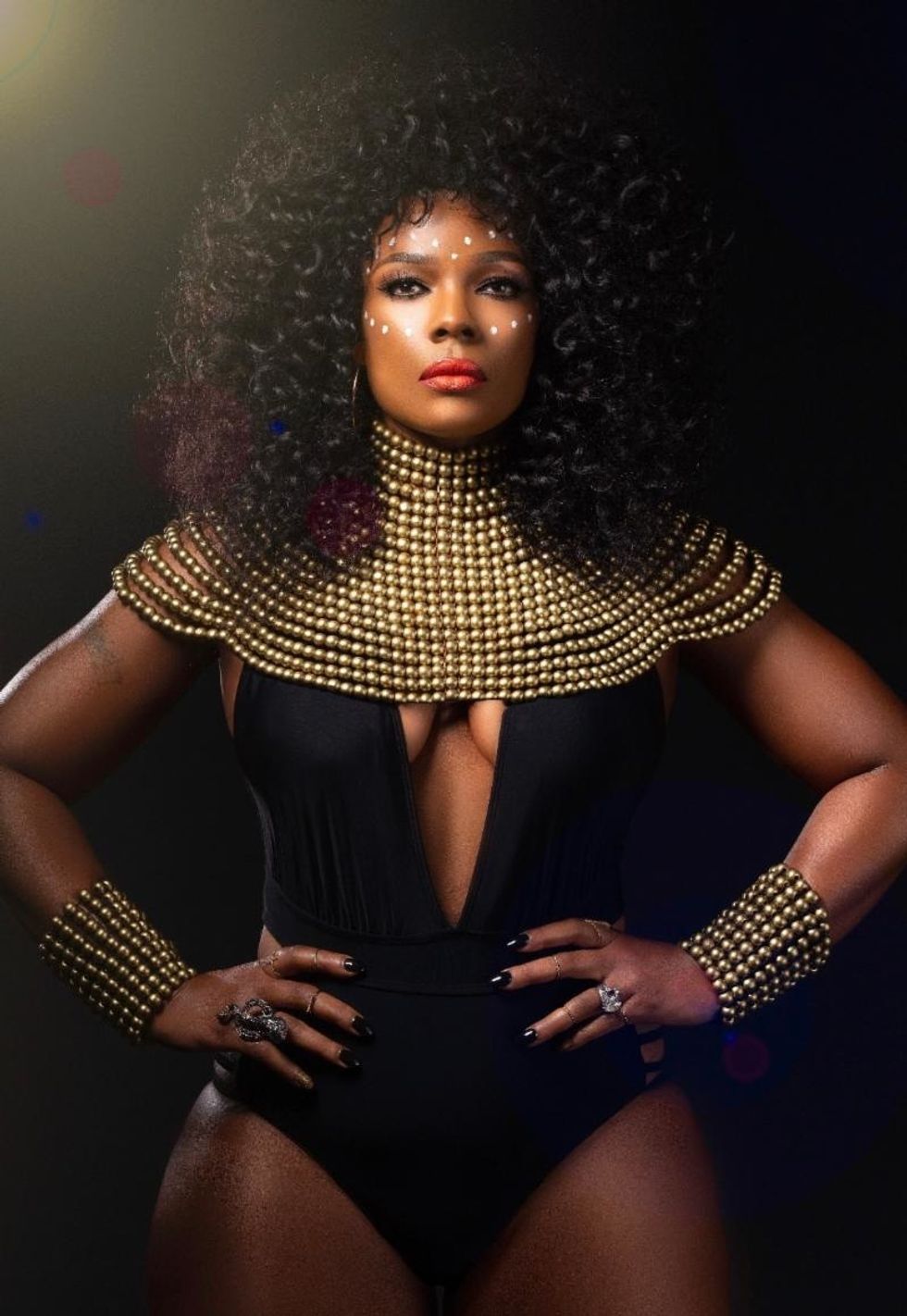
Courtesy of Tony Tyus Photography
"What I've learned throughout my own experiences in life is that femininity is a characteristic. Womanhood is a state of mind. Femininity is a characteristic, an accessory. Anyone can be feminine, however it is a characteristic that is interchangeable, whereas womanhood is a growth process, state of mind. A state of being."
For Black womanhood, what do you believe makes Black women the most powerful and most majestic?
Resilience, our humility, our hearts have made us majestic. The fact that we've endured so much from the test of times has made us extremely powerful and majestic. We are resilient, durable, sustainable. We are smart, we are vociferous, brilliant, studious, meticulous, but we are kind, careful, and multi-layered.
How would you say that you've grown as a singer-songwriter since you first started in the music industry?
I have grown tremendously since coming into the industry and my writing has grown and evolved. I have a different and new sound. I've grown as a woman so I can't stay in the same frame of mind as my other albums. When you're saying different things, you have to stretch out and grow. And that's where I've improved as an artist and singer since first being introduced in the industry.
Being a Black woman in the industry is tough, especially when you're in the spotlight as an artist. How do you manage your mental health and how can the music industry do a better job at protecting Black women?
I manage my mental health by working out and doing stress reduction activities. I am really into fitness and bodybuilding. It allows me to be focused and gain mental clarity. I am also an advocate and use therapy as an outlet to manage my mental health. I have recently embarked on a fitness journey where I competed in a fitness bodybuilding competition which totally improved and helped with my mental health. I was able to not only transform physically losing over 55 pounds but was also able to grow internally within the process.
The music industry can do a better job protecting Black women. The most important thing they can do is listen to Black women. We are not objects. We are not possessions. Listen to Black women and see how they feel, ask are you being heard and valued? Are you being treated fairly? That is how you can protect Black women by listening and valuing us.
If you listen, you learn.
For more of Syleena, follow her on Instagram.
Featured image courtesy of Tony Tyus Photography


